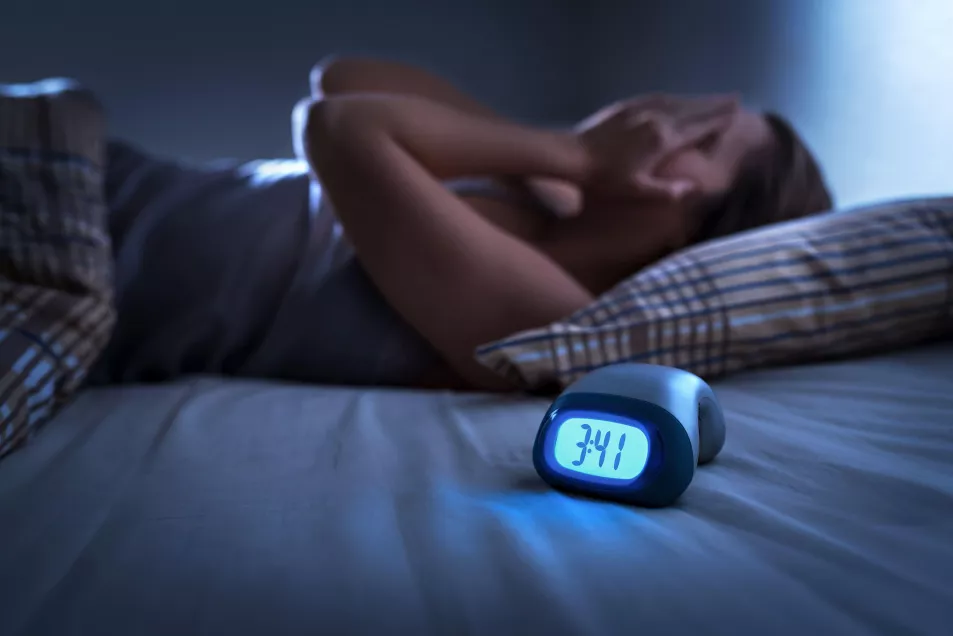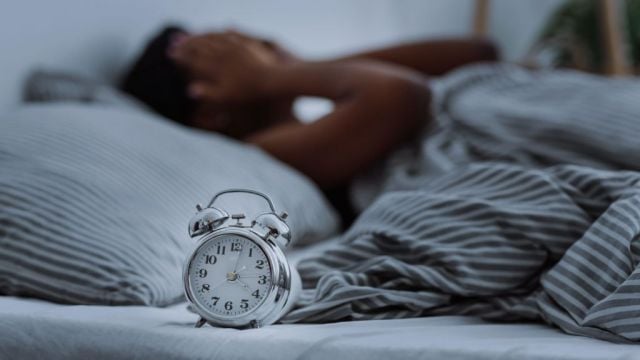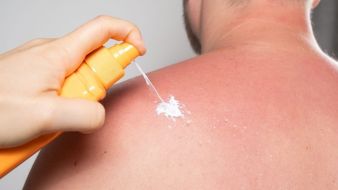While many of us are aware getting enough slumber is essential to our health and wellbeing – what about health concerns that arise when we’re actually asleep?
A big example is sleep apnoea – a common condition that causes breathing to be interrupted during sleep. As well as resulting in ongoing tiredness, if left untreated, it can potentially cause various health conditions, including heart diseases, diabetes and depression.
What is sleep apnoea?

Sleep apnoea is a sleep disorder that causes repeated breathing interruptions during sleep. According to experts, obstructive sleep apnoea (OSA) is the most common type of the disorder, impacting approximately one in 20 people.
Emma Rubach, head of health advice at Asthma + Lung UK, explains: “Usually when you’re sleeping, air can travel freely to and from the lungs via your airways, but with sleep apnoea, the airway collapses – resulting in loud snoring, stopping or struggling to breathe, a feeling of choking or gasping, sudden body movements, waking up during the night, and snoring.”
The condition can also cause people to experience headaches, irritability and tiredness during the day.
Who is most at risk?
Experts say obesity, type 2 diabetes, having a chronic heart condition and age, are “key risk factors” for OSA, and men also tend to be more likely to experience sleep apnoea than women.
Professor Esther Rodriguez Villegas, founder of Acurable, which creates wearable medical devices designed to detect sleep apnoea, says: “The additional weight on the neck, seen in obesity, the tissue structure and changes that occur through ageing, can impact the ability of the throat to remain open at night.
“Men have traditionally been thought of as being two to three times more likely to be diagnosed with sleep apnoea, although there is now strong evidence that in women, the condition is often misdiagnosed or missed entirely.”
Drinking alcohol, smoking and drug use can increase the likelihood of developing sleep apnoea too. Villegas adds: “Smoking, alcohol and drug use make sleep apnoea more likely, as they can cause the throat to relax, and there are some conditions, such as Down’s Syndrome, which make sleep apnoea more likely.”
Can sleep apnoea be life-threatening?
If left untreated, sleep apnoea can potentially lead to serious conditions such as diabetes and cardiovascular issues, including high blood pressure and stroke. This is due to sudden drops in blood oxygen during sleep, which increases blood pressure and strains the cardiovascular system, Dr Hana Patel, a sleep expert at Time4Sleep, says. “The condition can also cause heart arrhythmias, a problem with the regularity of a person’s heartbeat, which can lead to sudden death in those with pre-existing heart problems,” Patel explains.
The associated tiredness can also cause secondary problems. Villegas says: “It is well documented that untreated sleep apnoea drastically increases the incidence of road collisions, and the lack of regular healthy sleep can also cause depression or anxiety. Overall, having the condition untreated has been linked to both a significant effect on quality of life and a reduced life span.”
How can you treat sleep apnoea?

The condition is commonly treated with a continuous positive airway pressure (CPAP) machine – a mask “worn overnight that pushes pressured air into your windpipe to keep it open while sleeping”, says Villegas. “There are also a variety of mandibular advancement devices (MADs), which can help hold the jaw and tongue in a position that stops the airway from becoming blocked.”
In certain cases, Villegas suggests surgery on the nose, throat and mouth may help correct airway blockages. In children, a common surgery such as tonsillectomy may remedy the problem.
“In the majority of cases, some form of medical intervention will probably be required to resolve sleep apnoea. However, mouth and throat exercises, also known as myofunctional therapy or oropharyngeal exercises, have been shown to improve obstructive sleep apnoea and snoring in children,” Villegas says.
Lifestyle changes, such as losing weight if necessary, decreasing alcohol consumption and quitting smoking, can aid in managing or eliminating sleep apnoea symptoms too.







